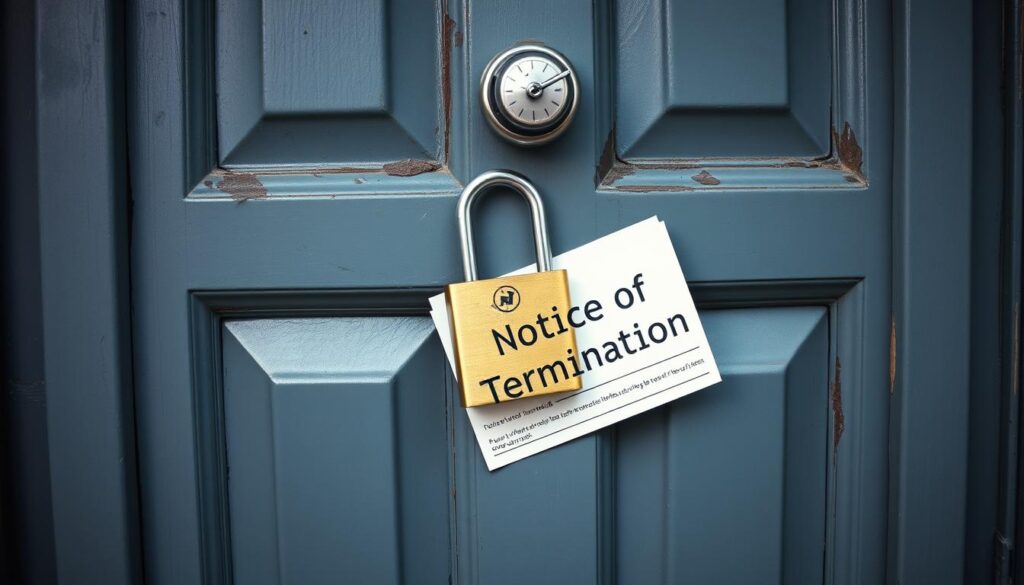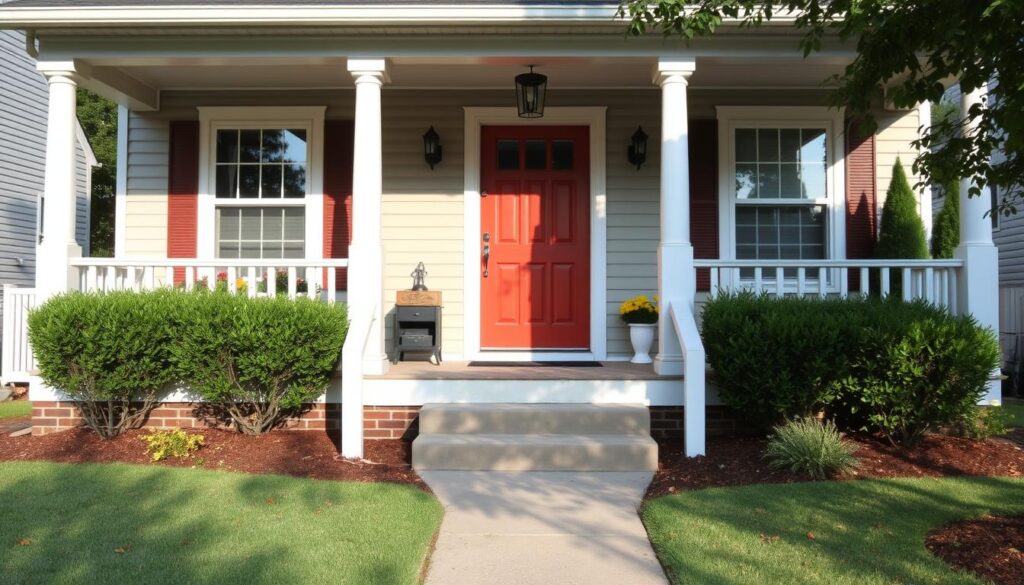Renting a home from a private owners renting Renting a home is a major decision, one that can significantly impact our lives. Whether it’s your first time renting or you’re a seasoned tenant, it’s important to be well-informed about the process to ensure a smooth and pleasant experience. One popular option is renting from private owners, individuals who own property and choose to lease it directly to tenants, rather than going through a rental agency. While this may seem like a simpler alternative, it’s crucial to familiarize yourself with the intricacies of private renting, including landlord-tenant laws and understanding rental income. This guide aims to equip you with the knowledge and tools necessary to navigate the private rental market and find your dream home. So let’s dive in and discover what you need to know when renting from private owners.
has its own set of benefits and challenges. This guide is here to help you, whether you’re a first-time renter or have rented before. It will give you the knowledge to find your perfect home when renting from a private owner1.
In the U.S., most private landlords have just one or two properties. Some even become landlords by accident. But, more people are choosing to be landlords on purpose to make money from real estate1. This guide will talk about what you and your landlord need to know when renting from a private owner.
Key Takeaways
- Private landlords often charge lower rents than property management companies because they have fewer expenses1.
- Landlords can evict tenants for damage or not paying rent. But, they must keep the place safe and livable1.
- Good communication and keeping records are key to avoiding problems and solving them fast1.
- Landlord insurance is important for protecting the property from unexpected events or damage1.
- Being consistent, flexible, and fair with tenants is important for a good landlord-tenant relationship1.
Understanding Lease Agreements in California
Renting from private owners in California means knowing the lease agreement well. This agreement sets the rules for both the landlord and the tenant. It must include important details like rent, payment dates, and how to end the lease2.
Key Components of a Rental Agreement
California law also outlines what both landlords and tenants must do. Landlords must tell tenants about things like lead paint and bed bugs2. It’s important for tenants to know their rights and what they must do when renting from a private owner.
- Landlords in California must tell tenants about pest control services and the chemicals used2.
- Lease agreements must include contact info for the landlord, details on the rental, and other important notices2.
When applying to rent, landlords look at things like how reliable you are and if you can afford the rent. They can ask for your name, job history, and credit info with your okay3. They might also want to know about your pets, cars, income, and if you’ve filed for bankruptcy or smoke3.
Make sure to read the lease agreement well and know your rights and duties as a tenant in California. Understanding the lease helps make renting from a private owner go smoothly.
Rights and Responsibilities of Landlords
In California, landlords have certain rights and duties under the state’s rental laws4. We can collect rent and security deposits up to two months’ rent4. We can also start eviction proceedings if tenants don’t pay rent, break the lease, or commit crimes4.
But, we also have to keep the rental safe and livable4. This means fixing utilities, keeping common areas clean, and handling pests4. If we don’t fix things quickly, tenants can pay for repairs out of their rent4.
It’s key for us to keep the outside of the rental in good shape, like pipes and gutters, following state and local laws5. We also need to keep detailed records of all dealings with tenants, like rent and lease agreements5.
Choosing the right rent is important, and we can look at market rates to set a fair price5. Screening tenants carefully is also key to make sure they can pay and take care of the place5. Plus, we should ask tenants to have renter’s insurance to protect ourselves and our tenants’ belongings5.
As landlords, we have both rights and duties under California’s rental laws6. The Virginia Residential Landlord and Tenant Act (VRLTA) sets these rules for all kinds of rental homes6. By knowing and doing our part, we can manage our rentals well and keep good relations with our tenants456.
| Landlord Rights | Landlord Responsibilities |
|---|---|
|
|
Rights and Responsibilities of Tenants
In California, tenants have certain rights and responsibilities under state laws7. We can live in a safe, habitable place, sue our landlord for retaliation, withhold rent for essential service failures, and get back attorney’s fees7.
We must keep our rental clean and safe, not bother our neighbors, do minor repairs, pay rent on time, and follow the rental agreement7. It’s important to check if rent increases are fair and legal. Landlords can’t raise rent to get back at us or unfairly discriminate7.
| Tenant Rights | Tenant Responsibilities |
|---|---|
|
|
In Indiana, landlords must keep essential services and appliances working well, like electrical and plumbing systems, heating, and cooling units, and appliances like refrigerators and stoves8. They also need to maintain common areas, ensuring they are safe and look good8.
Landlords must fix issues with electrical, plumbing, and HVAC systems quickly to keep the place habitable8. They should tell tenants before entering for inspections or repairs, respecting tenants’ privacy and right to enjoy their space8.
Tenants in Indiana can access their rental and utilities without interruption8. Landlords can’t change locks or cut off utilities to force tenants out without a court order8. Utility companies must warn tenants before shutting off services, keeping essential services like electricity and water running during bad weather8.
“As tenants, we have a responsibility to uphold our end of the rental agreement, but we also have important rights that landlords must respect. By understanding and exercising these rights, we can ensure a positive and productive rental experience.”
Rent Payment Clauses
When renting from a private owner in California, knowing the rent payment rules is key. These rules say how, when, and where rent should be paid. They also cover late fees and bounced check charges9.
Landlords can charge late fees up to $25 for the first time and $35 for later bounced checks9. But tenants can hold back some rent if the landlord doesn’t fix needed repairs. This is called the “Repair and Deduct Remedy.”9
Landlords must give 30 days’ notice for rent increases, or 60 days if the increase is over 10% of the lowest rent paid in the last year9. Also, California’s rent control laws limit rent hikes to 5% plus inflation or 10% of the lowest rent in the last year9.
Understanding these rent payment rules helps tenants manage their rental agreements better9. Knowing the laws about rent in California can prevent problems and keep the relationship with the landlord good10.
Security Deposits
In California, landlords often ask for security deposits to cover unpaid rent or damage when a tenant leaves11. They can charge up to one month’s rent for an unfurnished place, two months for a furnished one, or three months for a furnished place with a waterbed11.
Deductions and Return Policies
Landlords must give back the full deposit or explain any deductions within 21 days after the tenant leaves11. They can only deduct for unpaid rent or major damage, not for normal wear and tear11. If they don’t return the deposit or explain deductions, they could face penalties11.
Tenants can challenge any deductions from their deposit and should document the property’s condition before leaving11. This means doing an inventory, taking photos, and keeping records of talks with the landlord11.
| Security Deposit Regulations in California |
|---|
| – Security deposits cannot exceed one month’s rent for unfurnished apartments, two months’ rent for furnished apartments, or three months’ rent for furnished apartments with a waterbed11. |
| – Landlords must return the full security deposit or provide an itemized list of deductions within 21 days of the tenant’s move-out11. |
| – Deductions can only be made for unpaid rent or repair costs due to extreme wear and tear, not normal daily use11. |
| – Tenants have the right to dispute any deductions and are advised to thoroughly document the property’s condition before moving out11. |
Knowing their rights about security deposits helps California tenants smoothly end their rental agreements11. Following the state’s rental laws can avoid disputes and protect both sides’ interests11.
Lease Termination and Evictions
In New Jersey One of the most challenging aspects of property management is lease termination and evictions. Whether you are a private owner renting a single property or a company managing a portfolio of units, understanding the legal processes and obligations is crucial. It is your responsibility to ensure the property is well-maintained and the tenants are screened thoroughly, but sometimes, despite your best efforts, eviction becomes necessary.
Property maintenance is an ongoing task that requires attention and budgeting. Diligently addressing maintenance issues can help prevent conflicts and potential lease terminations. Regular inspections and prompt responses to repair requests can go a long way in maintaining positive tenant relationships. By investing in the upkeep of your property, you reduce the chances of facing issues that could lead to evictions.
When it comes to tenant screening, a comprehensive process is essential. Conduct background checks, verify employment and income, and speak to previous landlords to assess a potential tenant’s reliability. By thoroughly screening applicants, you can minimize the risk of entering into a lease with a tenant who may be more likely to violate the terms, leading to a potential eviction.
However, sometimes eviction becomes unavoidable due to reasons such as non-payment of rent, property damage, or violation of lease terms. It is crucial to familiarize yourself with the legal procedures applicable in your jurisdiction to ensure you follow the correct steps. Consult an attorney if necessary to safeguard your interests and ensure compliance with the law.
In conclusion, property maintenance, private owner renting, and tenant screening play significant roles in lease termination and preventing evictions. By investing in timely repairs and maintenance, conducting thorough tenant screenings, and being aware of the legal requirements surrounding evictions, you can manage your properties more effectively. Ultimately, a well-informed and proactive approach will minimize the chances of facing eviction situations and help foster a positive rental experience for both tenants and property owners.
For real estate investors, understanding the process of lease termination and evictions is crucial. Whether you’re managing vacation rentals or long-term residential properties, being well-informed about the legal requirements can save you time, money, and potential headaches.
When it comes to ending a lease, both tenants and landlords need to consider their respective rights and duties. In New Jersey, specific laws govern this process, and it’s essential to familiarize yourself with them. Terminating a lease can be a smooth and amicable process if both parties adhere to the predefined terms and follow the proper procedures.
Evictions, on the other hand, are the unfortunate consequences that may arise when tenants fail to comply with their obligations. As a landlord or property manager, knowing the eviction process can help you maintain control over your rental property and protect your investment. However, it’s important to note that evictions should always be the last resort and pursued only after other alternatives have been exhausted.
To navigate lease terminations and evictions successfully, seeking legal guidance or working with a rental property management company is highly advisable. These professionals can provide valuable support and ensure that you comply with the necessary laws and regulations. Remember, being well-informed and proactive in managing your rental properties will ultimately contribute to the success of your real estate investing endeavors.
, knowing the laws about ending a lease and evictions is key for tenants. Both sides have rights and duties when ending a rental agreement12.
Usually, both landlords and tenants can end a month-to-month lease with a 30-day notice in writing12. Some states let tenants leave early for reasons like military service or domestic violence12. Landlords can only kick tenants out for reasons like not paying rent, breaking the lease, or criminal acts13.
Evicting someone follows a strict legal process, starting with a three-day notice to pay or leave13. If facing eviction, tenants should get legal help to know their rights and options. Evictions can hurt a tenant’s rental history and credit score13.
Lease termination is when both the tenant and landlord agree to end the lease early, as stated in the lease13. This way, it’s a friendly end without the legal steps of an eviction13.
Getting advice from eviction lawyers or attorneys is wise for both sides in lease terminations and evictions13. Knowing your rights and duties is key for a smooth, legal process14.

| Lease Termination | Eviction |
|---|---|
| Mutual agreement between tenant and landlord before lease term expires | Legal process initiated by landlord for breaches in the lease terms |
| Follows terms in the lease agreement, like notice periods or penalties | Involves court actions and potentially requiring eviction lawyers or attorneys |
| May affect tenant’s future rental references and credit history | Can negatively impact tenant’s rental history and credit score |
| Provides flexibility for tenants and landlords to explore new options | Challenges tenants in securing future rental housing |
In conclusion, knowing the details of lease terminations and evictions is vital for everyone in California. Getting legal advice ensures a smooth, legal process, protecting everyone’s rights13.
private owners renting
Renting from private owners can be a good choice compared to big property management firms. They often give more personal service and may charge lower rent. They also manage properties more closely15. But, it’s important for renters to check the landlord well, know the rental agreement, and be aware of any special rules16.
One big plus of renting from private owners is their flexibility. They might be okay with month-to-month leases and pets, fitting different tenant needs15. Also, tenants can get quicker help with repairs since they talk directly to the landlord15.
But, private owners might handle things like maintenance, checking tenants, and collecting rent differently than big companies. Renters should find out if the property is under rent control or has tenant laws16. Also, these rentals might not have all the extras that big places do, which could make tenants less happy15.
When looking at a private owner rental, ask about things like upkeep, paying for utilities, parking, lease lengths, pet rules, and rules for the house and guests15. Be careful of scams, as they can happen more with private owners17.
In summary, renting from private owners has its perks but requires careful thought for a good experience. By knowing what private rentals offer and checking out landlords, renters can find a place that suits them well161517.
Landlord Entry and Disclosures
In California, knowing the laws about landlord entry and what they must tell you is key18. Landlords can enter for emergencies, checks, repairs, and to show the place to others, but they must tell you 24 hours ahead of time18. They also have to share important info with you, like about lead paint, bed bugs, mold, past pest control, and utility use18.
This info helps tenants know what they’re getting into and what might be issues with the place18. It’s good for tenants to know about their landlord’s entry rights and what they must share. This keeps things fair and helps everyone get along18.
For instance18, every place with more than one unit needs smoke and carbon monoxide detectors, which the landlord must put in18. If there are many units, landlords must provide heat, hot water, and other needed services as the law says18. Tenants can sublet with the landlord’s okay, unless the landlord has a good reason not to agree in places with four or more units18.
It’s crucial for tenants to know their rights and what landlords must do for a good rental experience18. Knowing about landlord entry and what they must share helps tenants look out for themselves and keep a good relationship with their landlord18.
| Landlord Obligations | Tenant Rights |
|---|---|
|
By getting to know California’s rental laws, tenants can make sure their place is safe, livable, and protected1819.
Conclusion
Renting from private owners in California has its ups and downs. Knowing about rental agreements, our rights, and how rent works is key. This knowledge helps us do well in the private rental market20.
It’s important to talk openly with landlords and fix any issues quickly. This keeps renting smooth and positive. Knowing about tax benefits of owning a home and the extra costs and time it takes helps us make better choices2021.
To make renting from private owners in California good, we must know our rights and what landlords must do. This way, we can enjoy renting while avoiding problems and having a good experience21.
FAQ
What are the key components of a rental agreement when renting from a private owner in California?
What are the rights and responsibilities of landlords who rent to tenants in California?
What are the rights and responsibilities of tenants in California?
What are the rent payment clauses and policies in California?
What are the policies around security deposits when renting from a private owner in California?
What are the rules around lease termination and evictions in California?
What are the benefits and challenges of renting from private owners compared to larger property management companies?
What are the landlord entry and disclosure requirements in California?
Source Links
- What is a private landlord? – https://www.steadily.com/blog/what-is-a-private-landlord
- California Lease Agreements: A Complete Guide – Azibo – https://www.azibo.com/blog/california-lease-agreements
- California Rental Agreements and Documents a Landlord Needs – https://www.singlekey.com/en-us/near-me/california/california-rental-agreements-and-documents-a-landlord-needs/
- Virginia Landlord Tenant Rental Laws & Rights for 2024 – https://www.doorloop.com/laws/virginia-landlord-tenant-rights
- What Are The Legal Rights of a Private Landlord? | Baselane – https://www.baselane.com/resources/what-are-the-legal-rights-of-a-private-landlord/
- What Tenants and Landlords Need to Know – https://www.fairfaxcounty.gov/cableconsumer/csd/what-tenants-and-landlords-need-to-know
- Indiana Landlord Tenant Rental Laws & Rights for 2024 – https://www.doorloop.com/laws/indiana-landlord-tenant-rights
- Tenant Rights In Indiana – https://www.steadily.com/blog/tenant-rights-in-indiana-a-comprehensive-guide
- Residential Tenants’ Rights Guide – https://ag.ny.gov/publications/residential-tenants-rights-guide
- PDF – https://www.nyc.gov/assets/buildings/pdf/tenants_rights.pdf
- What is a Security Deposit? – https://studentlegalservices.umich.edu/article/security-deposits
- Terminating a Lease of Rental Property & Related Legal Rights and Obligations – https://www.justia.com/real-estate/landlord-tenant/information-for-tenants/terminating-a-lease/
- Tenant Eviction vs. Lease Termination: Key Differences and Consequences – https://www.radowlawgroup.com/blog/tenant-eviction-vs-lease-termination-key-differences-and-consequences/
- Can a Landlord Terminate a Lease Early? – AAOA – https://www.american-apartment-owners-association.org/property-management/can-a-landlord-break-a-lease/
- For Rent by Owner Apartments: How to Find Them [2024] – https://www.apartmentlist.com/renter-life/for-rent-by-owner-apartments
- For Rent By Owner: The Pros and Cons of Renting from a Private Landlord – https://www.rent.com/blog/rent-from-a-private-landlord/
- How to Find Private Landlords: 11 Different Places to Search – https://www.wikihow.com/Find-Private-Landlords
- LEGALease: Rights of Residential Owners and Tenants – New York State Bar Association – https://nysba.org/legalease-rights-of-residential-owners-and-tenants/
- The Complete Guide on Landlord Tenant Laws – New York 2023 – Azibo – https://www.azibo.com/blog/landlord-tenant-laws-new-york
- Why Renting a Home is Sometimes Better than Owning – Bloom Advisors – https://www.bloomadvisors.com/why-renting-a-home-is-sometimes-better-than-owning/
- Renting vs. Buying a Home: What’s the Difference? – https://www.investopedia.com/articles/personal-finance/083115/renting-vs-owning-home-pros-and-cons.asp





